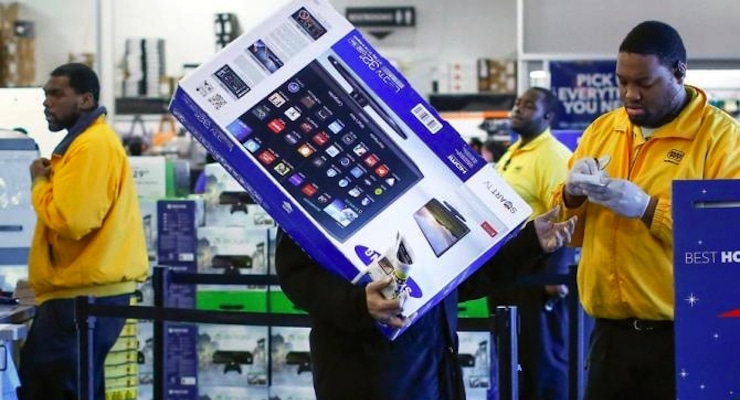

(Photo: REUTERS)
The Labor Department reported Tuesday the consumer price index (CPI) increased 0.3% in September, matching the median forecast. Excluding the volatile food and energy components, consuemr prices rose 0.1%, slightly missing the media forecast for a 0.2% gain.
The report indicated inflation is slowly rising and could potentially lead the Federal Reserve to raise interest rates. However, the Fed is expected to delay raising interest rates at its policy meeting until after the 2016 presidential election, but indicated it could raise rates slightly in December.
The CPI, measuring what Americans pay for everything from dental care to cars, will be used to determine how much to increase federal benefits for millions of Americans who receive Social Security checks. The data from the report suggest benefits will likely rise 0.3% next year, under an annual cost-of-living adjustment that is tied to how much certain prices grew in July through September compared with 2014, the last year when benefits were adjusted.
The Social Security Administration will officially announce the adjustment later Tuesday.
Consumer prices have grown in six of the past seven months. Compared to a year earlier, overall prices grew 1.5% in September, the biggest gain over any 12-month period since October 2014, though still weak historically. Core prices grew 2.2% from a year earlier.
Higher oil prices are driving the latest growth. Energy prices climbed 2.9% since August–driven by higher gasoline costs–but were still down by 2.9% compared to a year earlier.
Food prices were flat from August and fell 0.3% from a year earlier.
The Fed’ using an in-house index that shows overall prices rose 1% in the year through August while core prices increased 1.7%. Inflation remained below the target for more than four years.
In a separate report released Tuesday, data showed that workers’ earnings barely grew last month. Americans’ average weekly earnings, after accounting for inflation, grew just 0.2% in September from a month earlier. Their inflation-adjusted hourly earnings fell, but the hours that they worked–the average workweek–increased.
The most damning journalistic sin committed by the media during the era of Russia collusion…
The first ecological study finds mask mandates were not effective at slowing the spread of…
On "What Are the Odds?" Monday, Robert Barnes and Rich Baris note how big tech…
On "What Are the Odds?" Monday, Robert Barnes and Rich Baris discuss why America First…
Personal income fell $1,516.6 billion (7.1%) in February, roughly the consensus forecast, while consumer spending…
Research finds those previously infected by or vaccinated against SARS-CoV-2 are not at risk of…
This website uses cookies.